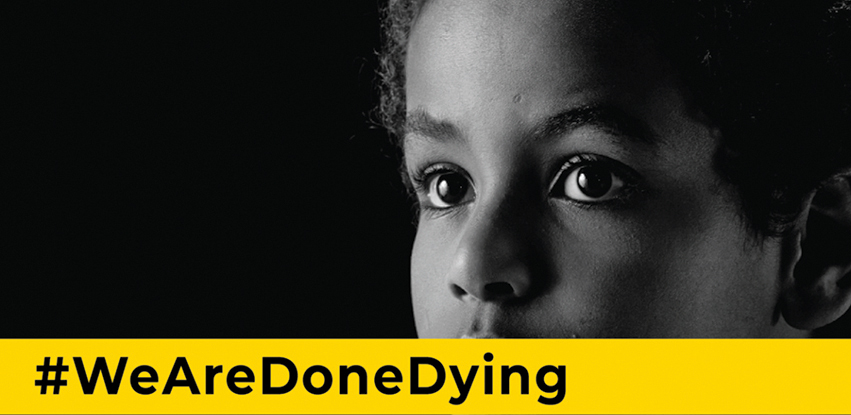Economic & Social Justice

Enough is enough! I say—like so many others after seeing the murder of George Floyd by a police officer who literally choked him to death using his knee, his hands in his pocket, looking nonchalantly into the camera.
Police reform is a must, but social justice must not stop with police reform. As historian Rick Perlstein has said, “Economic issues are a subset of social justice. Social justice is unimaginable without economic justice.”
According to BusinessDictionary.com, economic justice is defined as “the basic and well-accepted principle of fairness where the consequence of official policies should be the equal allocation of benefits among participants in an economy.” As the Rev. Al Sharpton pointed out during the eulogy for George Floyd, “We don’t want any favors—we want what is fair.” It is time to take your knee off our necks.
As a pastor, I know the truth can be hard to face, but I also know that the truth will make you free.
A Legacy of Disadvantages
In his book PowerNomics, Dr. Claude Anderson writes, “Although slavery and Jim Crow semi-slavery ended generations ago, their legacies live on in various forms of structural racism.” He goes on to say that, “Contrary to popular notions about the concept of race, it is more than a biological grouping. Race is about financial, political and social currencies. It is a form of stored wealth and power.”
Systemic racism is more than an individual act of hatred. It is state-sanctioned violence that dehumanizes black, brown and indigenous people. And state-sanctioned violence is more than a knee on the neck. It is treating a group of people as less than human beings and not as fellow Americans with equal protection under the law.
“During the centuries of Black slavery and Jim Crow semi-slavery, the majority society inherited its advantages while a black minority inherited a legacy of disadvantages,” Dr. Anderson writes. “After the Supreme Court ordered racial desegregation, Black Americans still bear six to eight times the proportional share of poverty, broken homes, homelessness, criminal incarceration, unemployment and other social pathologies.
“Desegregation should have been about redistribution, wealth, power and resources, not just about social integration,” he points out. “Social integration addressed the symptoms, not the problem.”
The truth of the matter is that Black Americans’ wealth has been stagnant for 70 years. It would take the combined wealth of 11½ black families to equal the wealth of one white family. Let this sink in: George Floyd was murdered over an alleged fake $20 bill.
Black Americans do not want to just survive. We want to thrive.
CNN recently published a report illustrating U.S. Black-White inequality in six stark charts. It points out how ongoing protests following the murder of George Floyd have once again shone a spotlight on the longstanding racial divide in America. Despite the economic prosperity of recent years, the persistent inequities in wealth, health and opportunities have gotten worse for African Americans.
Inflection Point in America
Most of the problems in the Black community are rooted in economic injustice. Last month, according to Bloomberg, unemployment went down for whites and Hispanics, but went up for African Americans. As Valerie Wilson of the Economic Policy Group states, “Racial inequality has become so normalized in this society, that it is what we expect to see.” And this brings me to a conversation between Alice and the Cheshire Cat in the book Alice in Wonderland.
Alice: “Would you tell me, please, which way I ought to go from here?”
The Cheshire Cat: “That depends a good deal on where you want to get to.”
Alice: “I do not much care where.”
The Cheshire Cat: “Then it does not matter which way you go.”
We are at an inflection point in America, and more importantly, in Peoria. We have been ranked as one of the worst places in America for Black people to live. It is time to roll up our sleeves and be intentional on making and implementing the necessary changes toward economic justice.
The definition of insanity is doing the same thing and expecting a different outcome. We do not need any more consultants who draw up plans that end up on a shelf somewhere. It is past time for implementation. PM
Pastor Marvin Hightower is president of the Peoria NAACP and senior pastor at Liberty Church of Peoria.
- Log in to post comments

